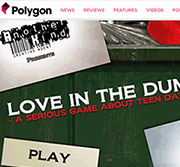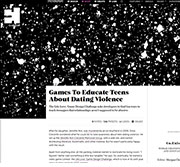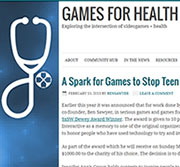Teen Dating Violence: Warning Signs

Abusive relationships tend to become more dangerous over time - the earlier that a potentially abusive relationship is identified, the better. Become familiar with these ten warning signs of teen dating violence to better keep yourself and your loved ones safe.
Teen Dating Violence: Ten Warning Signs
- 1. History of legal or discipline problems.
- 2. Blames you for his / her anger.
- 3. Serious drug or alcohol use.
- 4. History of violent behavior.
- 5. Threatens others regularly.
- 6. Insults you or calls you names.
- 7. Trouble controlling feelings like anger.
- 8. Tells you what to wear, what to do, or how to act.
- 9. Threatens or intimidates you in order to get their way.
- 10. Prevents you from spending time with your friends or family.
Teen Dating Violence: Safety Plan
Could you be in an abusive relationship? Create a safety plan:

1: Talk
Talk to somebody you trust like a parent, teacher,
or school counselor.
Or, if you prefer, call the National Dating Abuse Helpline
at 1-866-331-9474
You can talk with them at any hour of the day or night.

2: Plan
Plan in advance to have a safe place to go.
If you wait until a situation has become dangerous it might be much more difficult to
find and access a place where you will feel safe.

3: Phone
Keep money and your cell phone or calling card with you at all times.
You should also check out the free Circle of 6 app
which lets you quickly and easily connect with friends and family (available for Android & iOS).

4: Memorize
Memorize important numbers in case your phone is taken.
It is common practice for an abuser to keep your phone from you if the situation is deteriorating
so plan for that possibility.
Mobile phones are great at memorizing phone numbers and because of that we're less likely
to know those phone numbers ourselves.
Make sure that you've memorized a couple of phone numbers in case you find yourself without a phone.

5: Codeword
Establish a code word or sign so family, friends, and co-workers know when to call for help.
Although you might not want to talk with your family or friends about this,
it would be terrible to not have a prearranged code word if you should ever need it in the future.



